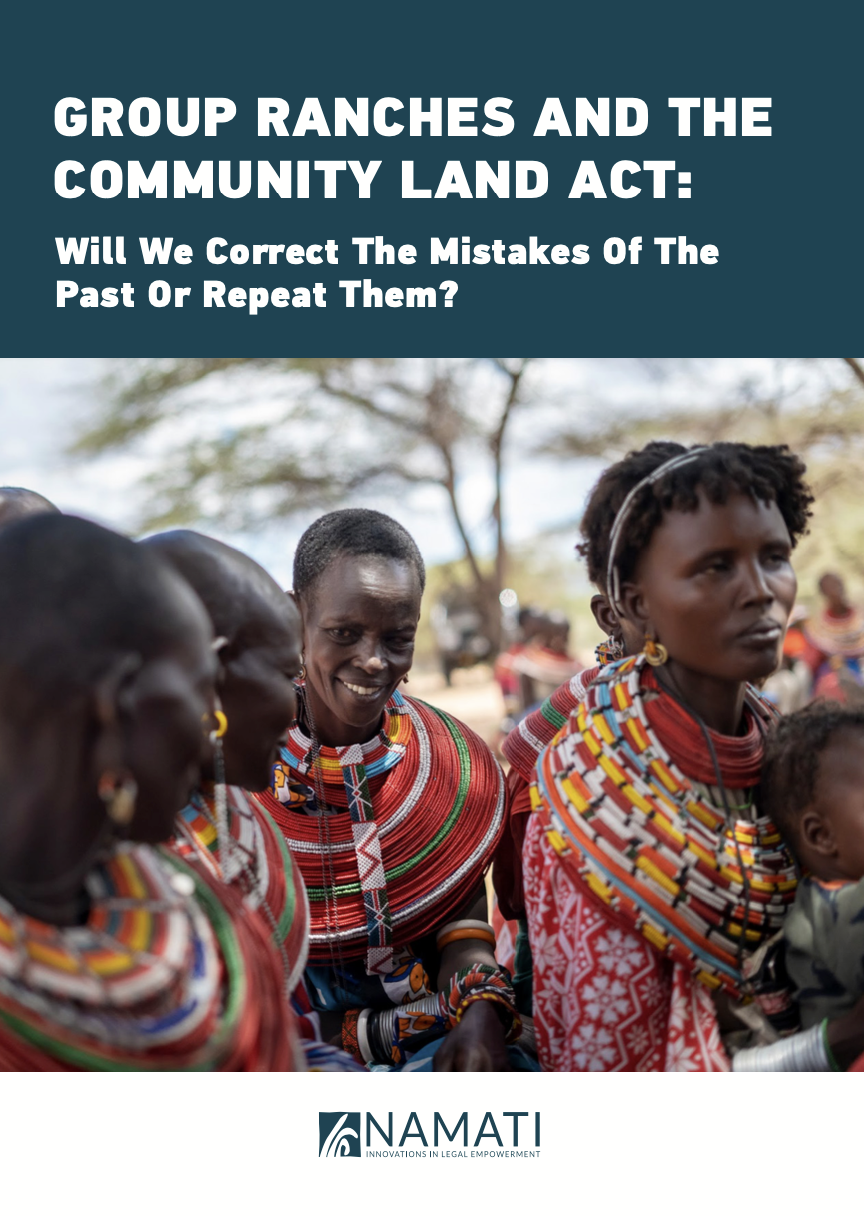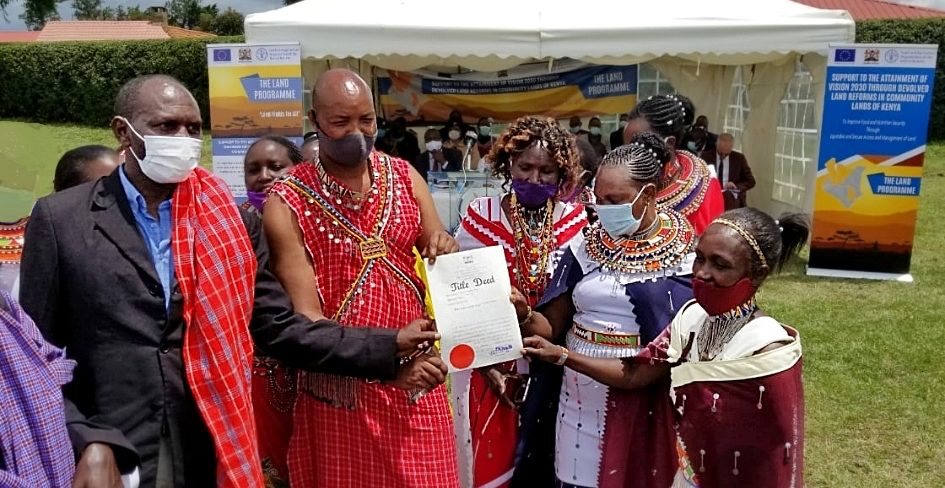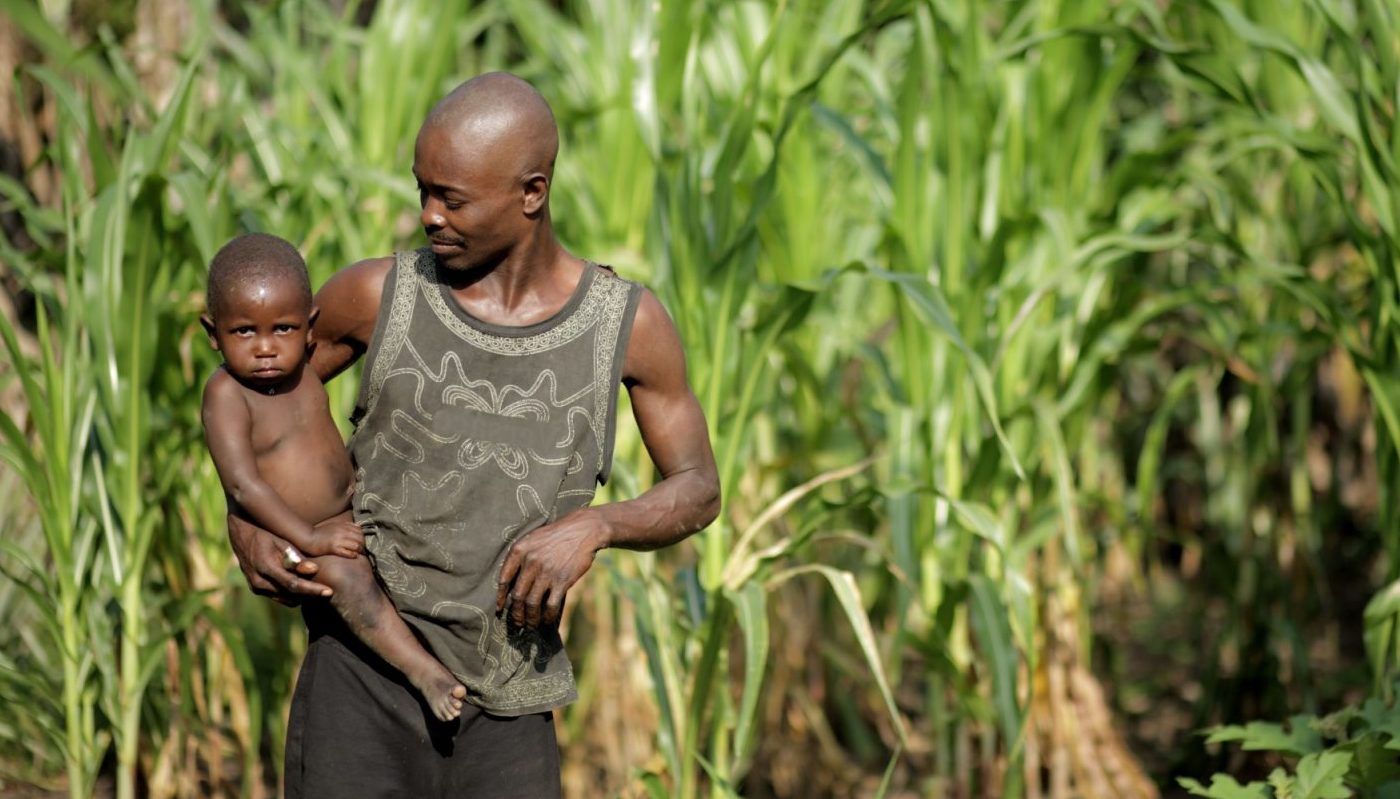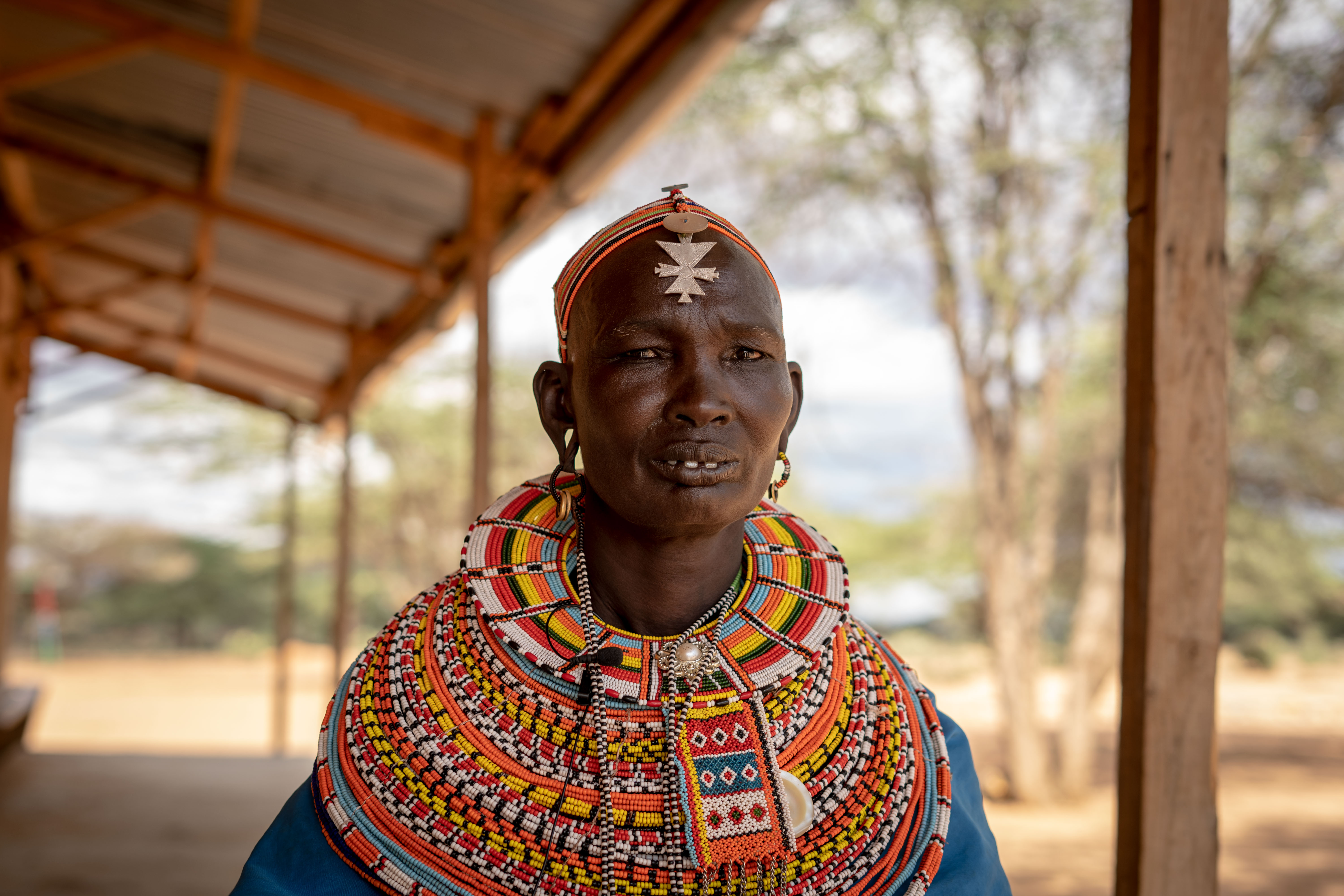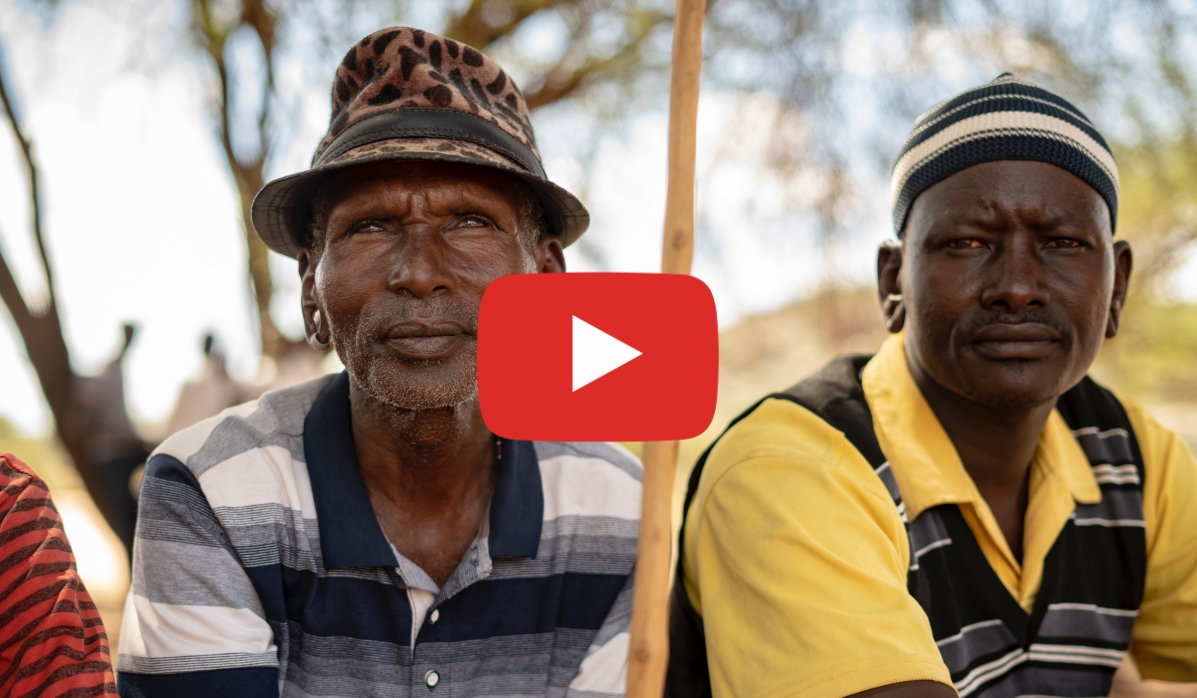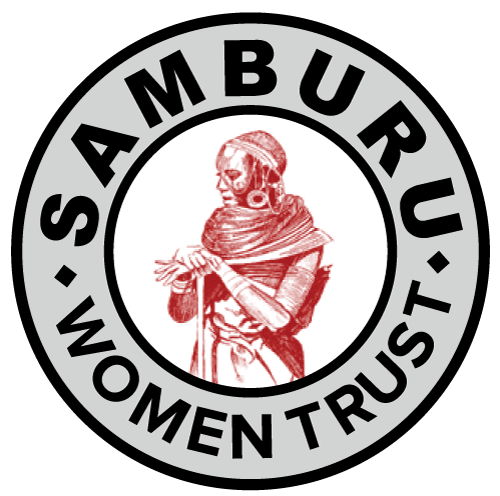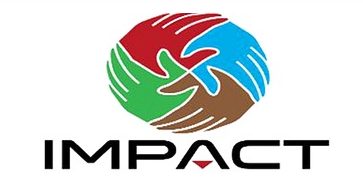2021 was a pivotal year for the CLP program. Despite the continued disruptions and challenges caused by the COVID-19 pandemic, the communities we work with made significant progress in claiming their rights and influencing how the law is being implemented.
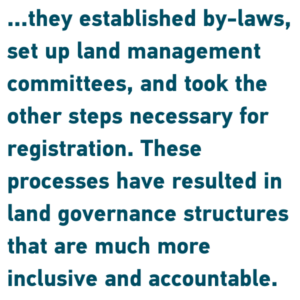 Fifteen communities, representing a total of over 20,000 people, pursued legal registration of their lands with support from Namati and partners, Indigenous Movement for Peace and Conflict Transformation (IMPACT) and Samburu Women’s Trust (SWT). Our community paralegals walked alongside them as they established by-laws, set up land management committees, and took the other steps necessary for registration. These processes have resulted in land governance structures that are much more inclusive and accountable. Data, which is to be published in a forthcoming report, clearly demonstrates that women in these communities have a meaningful influence on land-related decision-making — often for the first time.
Fifteen communities, representing a total of over 20,000 people, pursued legal registration of their lands with support from Namati and partners, Indigenous Movement for Peace and Conflict Transformation (IMPACT) and Samburu Women’s Trust (SWT). Our community paralegals walked alongside them as they established by-laws, set up land management committees, and took the other steps necessary for registration. These processes have resulted in land governance structures that are much more inclusive and accountable. Data, which is to be published in a forthcoming report, clearly demonstrates that women in these communities have a meaningful influence on land-related decision-making — often for the first time.
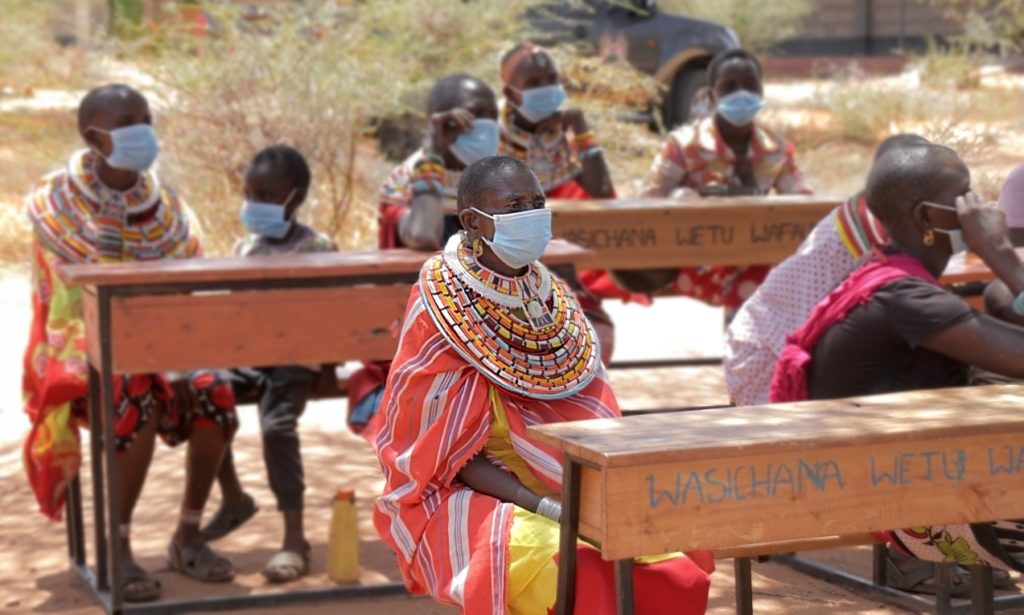
Women attend a community land meeting in Laikipia County. Credit: IMPACT
By the end of the year, 11 of the communities had submitted their applications and were pushing for them to be processed in a timely manner, in accordance with the law. Nkiloriti, a community in Laikipia County, received its title deed, becoming one of the few in Kenya to successfully use the Community Land Act to claim their land rights to date.
These communities and those we previously supported to meet the registration requirements represent over 75,000 people living on 300,000+ acres — an area 30 times the size of Manhattan. They’ve begun to form a critical mass that can hold the government to account and bring about systemic change. At the county level and nationally, they are working to ensure the law works for everyone.
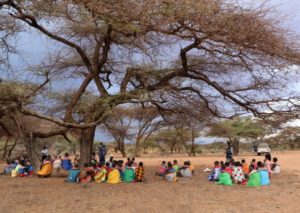
Community members gather for a meeting in Isiolo County. Credit: SWT
In early 2021, ten communities in Samburu County successfully advocated for a registrar to be placed in their county, making it significantly easier for communities to submit their land claims. Previously, applicants had to travel to a neighboring county, a trip that could take two or more days.
In Isiolo county, representatives from eight communities successfully challenged the local government’s imposed definition of what constitutes a “community”. They knew, having learned the contents of the Community Land Act, that they had the right to define themselves; to decide where their boundaries would be and who were the members of their community.
At the national level, these communities are coming together to advocate for improvements to the implementation of the Community Land Act. In November they engaged directly with representatives from civil society and county and national government at the Kenyan Community Land Summit, an event organized by our partner IMPACT, with Namati’s support. Community representatives spoke about the systemic barriers to realizing their legal land rights, drawing from their own ordeals and our program data to call for concrete reforms.
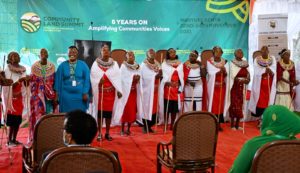
Members of the Twala Women’s Group from Laikipia County sing a song, showcasing the Maasai culture, as part of the Community Land Summit’s opening ceremony.
The CLP program gathers detailed information about each community we work with and their experiences using the Community Land Act. Taken together, this data paints a vivid picture of how the law is working in practice.
In December 2021, we expanded this knowledge base, collecting data from 17 communities in collaboration with the National Land Commission. The aim was to identify additional factors that are preventing the widespread implementation of the law. In early 2022, we will convene with community representatives to discuss the findings and develop recommendations to submit to the Ministry of Lands. This forthcoming policy brief will complement the one we produced in 2021 which outlines how the government can avoid repeating the mistakes of previous land laws when implementing the Community Land Act.
In 2022 we will double down on ensuring the Community Land Act is implemented fairly, quickly, and effectively across Kenya. We will organize with communities around the reform platform that emerged from the community land summit; conduct a pilot with a county government to test whether lighter touch paralegal support could equip more communities to secure their rights faster; and collaborate with new partners from hunter-gatherer and forest-dwelling communities to ensure they are not left behind under the current law.
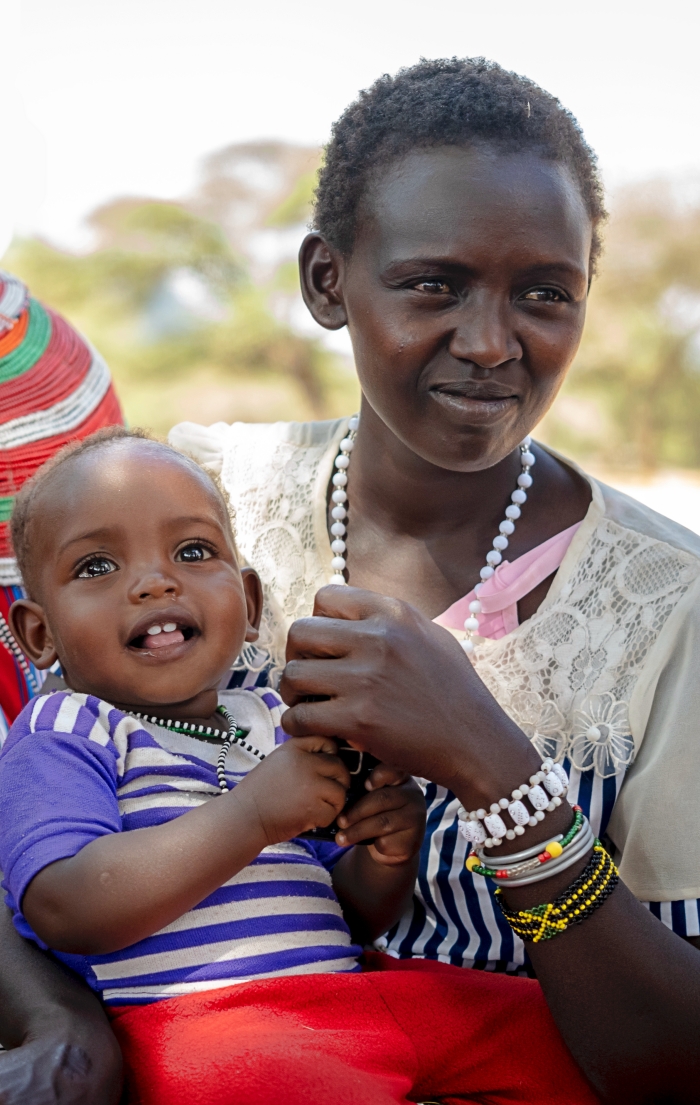
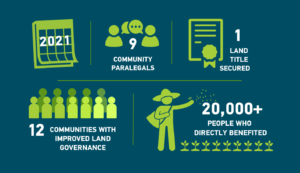

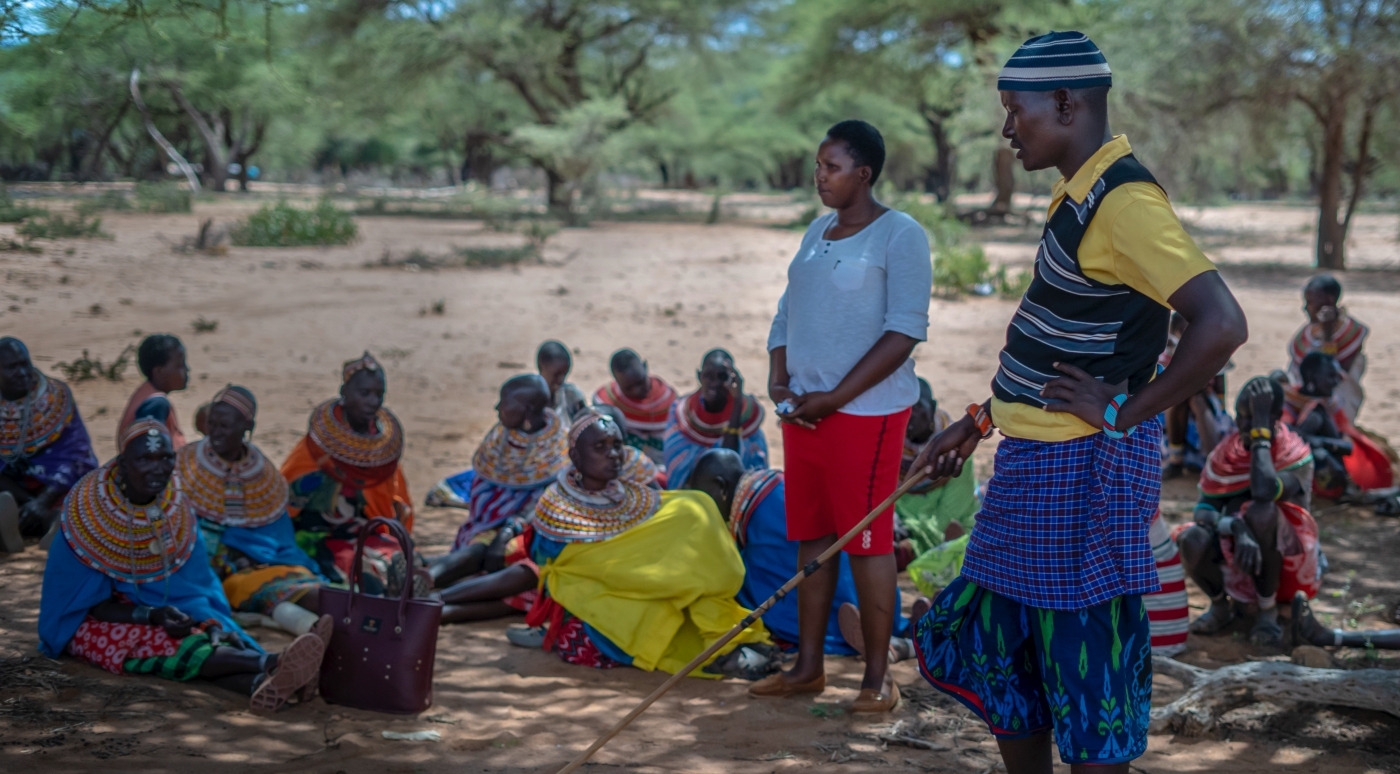
 Fifteen communities, representing a total of over 20,000 people, pursued legal registration of their lands with support from Namati and partners,
Fifteen communities, representing a total of over 20,000 people, pursued legal registration of their lands with support from Namati and partners, 


